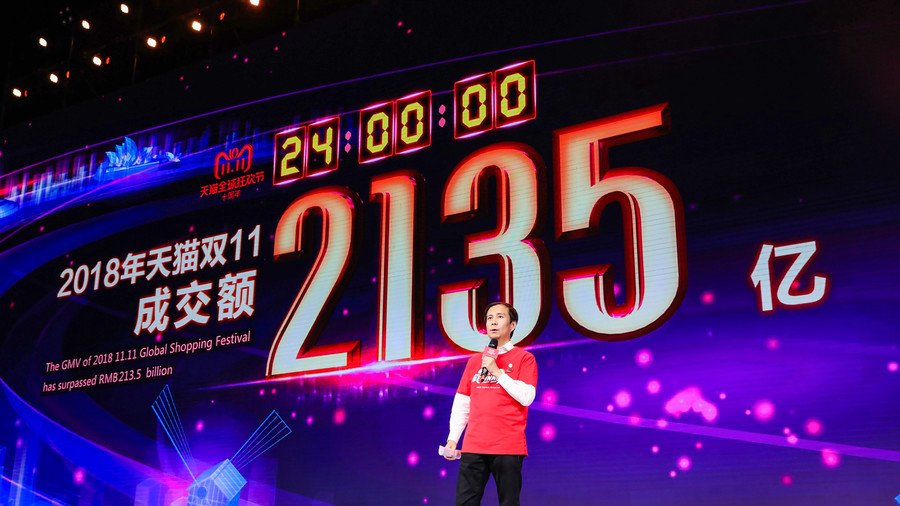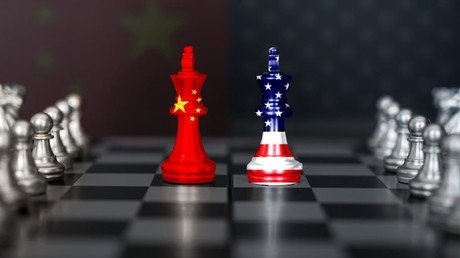E-commerce behemoth Alibaba smashes ‘Singles Day’ records with $1bn in sales in just 85 seconds

Chinese e-commerce giant Alibaba has smashed records for its Singles Day, the world’s biggest 24-hour shopping event, despite an ongoing trade war with the US and waning domestic interest in the event.
The 2018 edition of the 11/11 Singles Day brought in a record $30.8 billion (213.5 billion yuan, renminbi), beating Amazon’s Prime Day, as well as both US shopping holidays Black Friday and Cyber Monday combined.
Alibaba boasts a reported 666 million active monthly users, more than twice the population of the US, which may have helped.
“That trend [of a rising Chinese middle class] is not going to stop, trade war or no trade war,” Alibaba Executive Vice-Chairman Joe Tsai said in a company blog post on Sunday. Tsai estimates that China’s middle class would almost triple by 2030, from 300 million to 850 million.
In the nine years since Singles Day began, the number of brands that signed up to participate has gone from 27 initially, including Adidas, to 180,000. Alibaba’s main rival, JD.com, with backing from Walmart, Google and Tencent, posted its own Singles Day volume of $23 billion (RMB 160 billion).
The record $30.8 billion in sales marks a 27-percent increase on 2017. This does, however, mark a significant drop in overall growth, which is down compared to a rate of 39 percent year-on-year in 2017.
READ MORE: Jack Ma says US will ‘suffer more’ if it keeps trying to start Cold War with China
At present, only 17.5 percent of Chinese commerce is conducted online and Alibaba is trying to strike a balance between constructing more bricks-and-mortar ‘smart stores’ while maintaining a push towards digitization across the country.
Think your friends would be interested? Share this story!
















